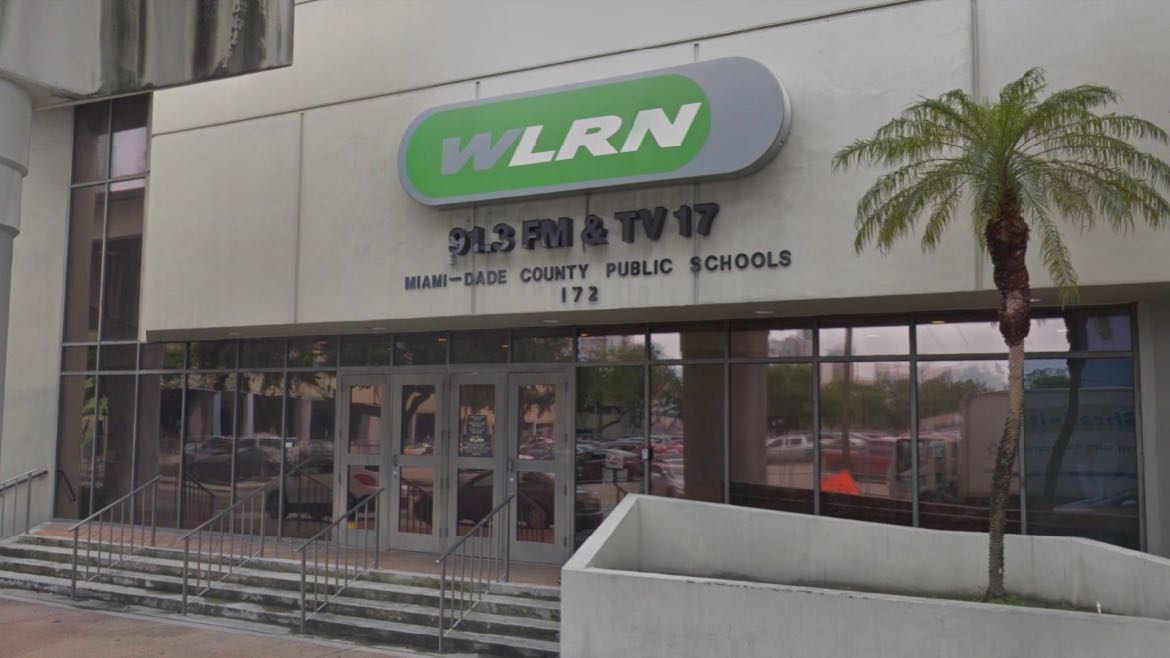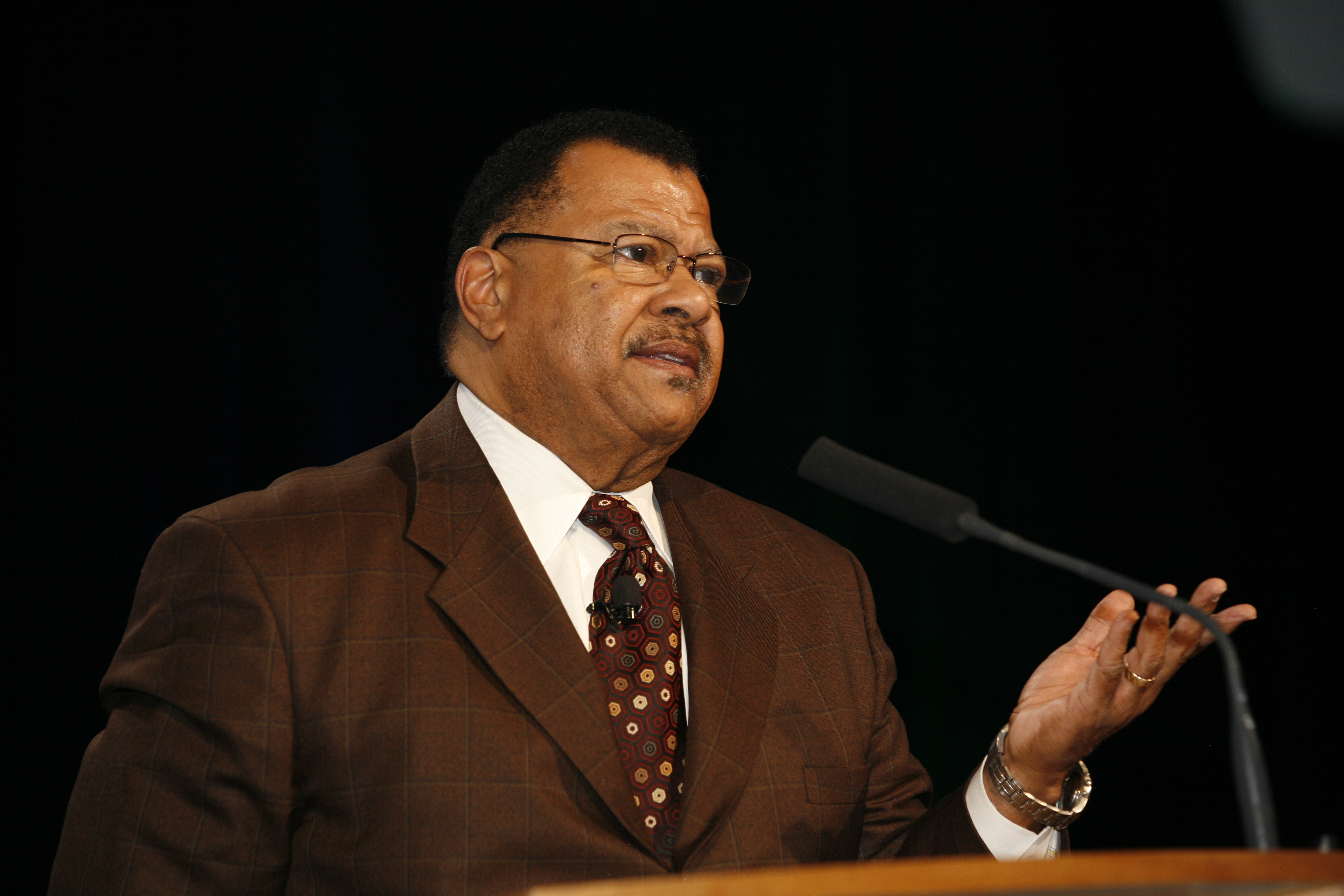New NPR mentorship program aims to address ‘a very particular diversity issue’

Lauren Zillinger/NPR
Sharahn Thomas, NPR's senior director of news operations and budget, is a mentor in the network's new program.
A new companywide mentorship program at NPR aims to bridge silos and develop careers.
The pilot program pairs 10 mentors with 10 mentees from throughout the company, including the newsroom, programming, music, IT Strategy, marketing and branding, the executive group and digital media, according to Keith Woods, VP for newsroom training and diversity. NPR plans to continue adding participants in three-month intervals to accommodate everyone who wants to be mentored.

Doby Photography/NPR
Woods
“Best practices in any organization, to support everything from retaining your talent to attracting and retaining a diverse workforce, all say that you should have a mentoring program,” Woods said. “So it’s been sitting there as a value, as this solid proven idea in need of someone to execute it for a while.”
Woods took over the NPR training team in March 2017, launched a leadership program in the fall and intended to launch the mentorship program in January. But “as you know, we had a huge problem,” Woods said, referring to NPR’s recent sexual harassment scandals. That delayed its launch to April 13 and prompted NPR’s HR and legal departments to vet all of the new mentors, Woods said.
Mentoring provides a range of benefits, including access to ideas, information and coaching, Woods said. “We also know that it’s the absence of that for women of all races and for people of color in particular that most hinders their ability in organizations to advance,” he said. “So having a mentoring program serves everybody and addresses a very particular diversity issue in organizations.”
NPR shared news of the mentorship program idea in an all-staff email in January and invited staffers to share what they would want to get from participating, Woods said. “One of the big requests we got was to not limit it to the newsroom,” he said. After choosing the mentees, NPR identified mentors who could meet their needs.
Nearly 40 temporary workers, interns and other employees with experience ranging from three months at the network to 30 years applied. The first cohort reflects the diversity of the group of applicants, which will help NPR learn about running a program to serve that range of participants, Woods said.
The 10 mentees include three people of color and seven women. Two mentors are people of color, and five are women. Each mentorship spans six months.
A way forward
At first glance, Alice Goldfarb and Sharahn Thomas seem like an unlikely pairing. Goldfarb is manager for projects and research with NPR Labs, while Thomas is senior director of news operations and budget.
But both work among large male groups of colleagues that function outside of the daily editorial hustle but supporting the newsroom.
“When you’re in news, editorial obviously reigns supreme,” Thomas said. “So although you’re supporting editorial, you’re working alongside editorial to help them execute goals, initiate day-to-day work.” Thomas said she has found advancing difficult “because the leadership structure wasn’t always attuned to operational needs, demands of the job. There wasn’t a clear course.”
Having moved up the NPR ladder over 18 years, Thomas, the mentor, will help Goldfarb understand problems and priorities in other areas of the newsroom, develop managerial skills and consider next steps when the path is unclear.

Becky Lettenberger/NPR
Goldfarb
“She sees all of these different aspects of the work and thinks about how to be diplomatic and useful and balance everyone’s particular priorities,” Goldfarb said of Thomas. “It’s a different set of considerations, but it’s a similar thinking about those structural dynamics that will be really helpful.”
The pair plans to touch base every two to three weeks.
Most applicants wanted career coaching, Woods said. Some said they have been in their respective departments for years, lack a sense of the rest of the organization and want to connect with someone in another space, Woods said. For example, a staffer in marketing wanted to talk to a colleague in programming to better understand what they are marketing, Woods said.
“A good number of people were interested in having somebody to talk to them about their craft, an ear to listen to their story or to hear a pitch for their story and help to sharpen those skills,” Woods said.
Value of different perspectives
Suraya Mohamed, a producer of programming and partnerships, wants to take on a more visionary role to support her work as a project manager of two NPR Music initiatives, Slingshot and Jazz Night in America. Earlier in her NPR career of nearly 30 years, Mohamed mostly took on shift work with rigid schedules and avoided attending career-building conferences or workshops that would take time away from her children.
“You’re never too old to stop learning and growing,” Mohamed said.

NPR
Mohamed
Mohamed wants to improve her communication skills and ability to parse information and make quick, educated decisions. She expects to meet monthly with Woods, her mentor.
“I like thinking about things with a different lens,” Mohammed said. “I live in my head and I swim in my lane, but somebody in a different department can have a different perspective, and those different perspectives are really valuable.”
The mentorship program coincides with a separate mentorship program for women of color at NPR, funded by the Online News Association.
In addition to one-to-one mentoring, NPR will offer training workshops over the next six months where participants will discuss negotiating, managing up and other challenges, Woods said.







